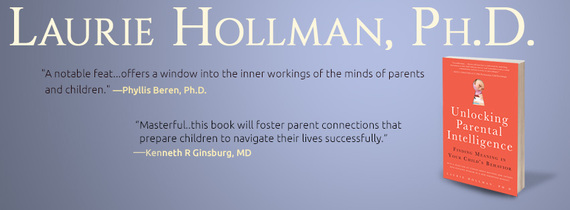
Do you hide your worrisome thoughts from others so they don't think poorly of you? Or, do you share them to relieve the intense anxiety you feel and others try to talk you out of them which you know can't work?
Do you do things you do compulsively knowing they just relieve anxiety but don't make a lot of sense? Do you try to hide them so no one thinks you're crazy? (You're not.)
You are not alone. Millions of sufferers just like you go through this 24/7. Even in their sleep they dream about doing and thinking these things. This is the plight of those with Obsessive Compulsive Disorder.
Let me explain that this is a disease. It won't work to just try will power to stop yourself. Your brain is telling you to do these things and think this way to relieve anxiety no matter how irrational the anxiety may be. There may be nothing realistic at all to fear, but it doesn't feel that way and you can't talk yourself out of it.
If you dare to confide in others, they will try to tell you to use self-discipline, just get over it, you're wasting your time and energy. But they don't understand it's not in your control.
This doesn't mean there's nothing to do to help yourself, but when others don't understand, it does make it feel worse.
10 Tips on Dealing With OCD
1.It isn't wise to tell yourself, in time it will all go away, and thus avoid getting professional help. Instead, it will probably get worse, so find a trusted professional therapist with experience in OCD. (not all therapists have this experience)
2.Discuss medicine with your therapist. For many, in fact most, anti-depressant medicine affects anxiety to a large extent and relieves many of the symptoms. Sometimes anti-psychotic medicines (you're not psychotic, but these medicines help) boost the effectiveness of the anti-depressant. Your therapist will send you to a trusted psychopharmacologist knowledgeable about these medications.
3.Talk therapy with a professional social worker or psychologist who understands the mechanisms of OCD and medication is very helpful.
4.Learning the mechanisms that you are using is relieving. For example, if you are afraid bad things will happen to you or others and you carry out a compulsion (wash something or throw something away) it's to undo the imagined fear of something awful occurring. The anxiety is relieved for only a short time and then you feel like doing it again hours or days later.
5.Learn to separate out your compulsions. For example, tell yourself that if you carry out a compulsion, one hour later you are fine. This is made up, but it helps. Give yourself hourly intervals or more or less when you feel that you are free from the anxiety that plagued you.
6.Count to yourself slowly to distract yourself from unwanted thoughts. This allows you to proceed with your day.
7.Educate your closest friends and family (only if you want to share it) so they stop giving advice that worsens your feelings. Remind them it's a disease and like the flu you can't just tell it to go away.
8.When you are feeling better, do not stop taking your medicine or discontinue your therapy. This is most likely a life-long process sadly. Continue the medicine and talking in therapy if it is working to maintain your well-deserved relief.
9.If a first medicine does not work, or has undue side effects, try another. Some people are lucky on the first try, but generally it takes time to find what works for you. Don't give up. It's worth the effort.
10.Talk therapy is generally good for most OCD sufferers. Some people do well with cognitive behavior therapy where you are presented with what scares you over and over until it doesn't bother you. This is a high anxiety treatment that is not right for all. Be wary of professionals who tell you they know what's best for all. This is an individual matter.
"I never had OCD before. Why now at this time?"
You probably had the proclivity for this disease but until very high stressors mounted up, it didn't appear. It's like you've been climbing a mountain all your life and your heavy boots sustained you, but then you reached too many cliffs and the last one tipped you over. If you think back, you were probably an anxious person, but were used to this temperament and dealt with it within your limits. Then your limits (we all have them) were exceeded and the flagrant OCD came forth.
Most important -- this is not your fault. You don't deserve this. You are not being punished. There is nothing to feel guilty for. You are hurting no one. You must nurture yourself and only stay close to people who know how to support you and comfort you. People with OCD whose close companions understand the disease and care for and support you relieve their symptoms more effectively.
Get help, care for yourself, and be kind to yourself.
Laurie Hollman, Ph.D., is a psychoanalyst with decades of treating children and adults with OCD. Her recent book, Unlocking Parental Intelligence: Finding Meaning in Your Child's Behavior, will help parents whose children have OCD. It can be found on her website, Amazon, Barnes & Noble, Familius and wherever books are found.